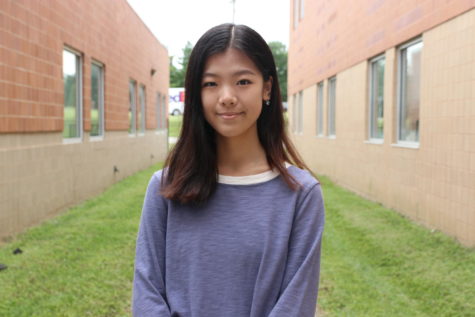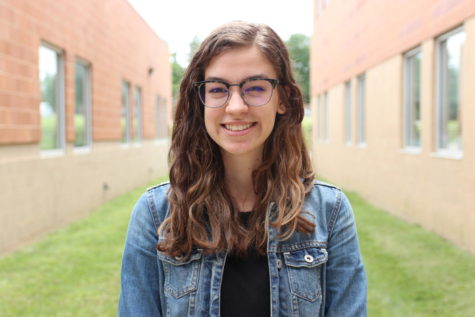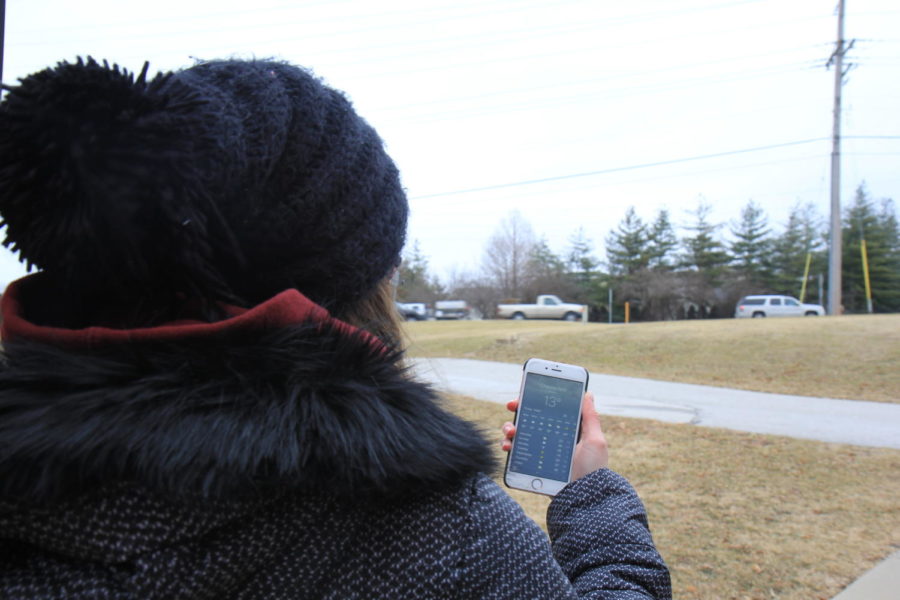Discussions surface as inclement weather increases
It’s 6:51 a.m.
The day is Jan. 4.
The temperature is 3℉.
A few students are standing on the sidewalk.
One of these students is Dakota Sherman, sophomore, who rides the bus to school. Sherman said a little ice should not be the reason for a snow day, and he supports the district’s decisions regarding cold days.
“[School should not be canceled] if it is just a little bit icy but still fine to drive,” Sherman said.
However, Sherman said that during days with a high wind chill, school should be shortened days instead of canceled, since it often is very cold after school. Sherman said he believes this policy should be applied if the temperature reaches below 5℉.
Superintendent Dr. Eric Knost said each weather situation is independent of others, which causes confusion for parents and students. Knost said advisories, none of which were the National Weather Advisory, have told people to take precautions against the colder weather by wearing more clothes and not staying outside for too long.
“If some students don’t have the proper clothing to bundle up then, of course, the parent can always make the decision to keep their child home from school,” Dr. Knost said.
Dr. Knost said schools may close from cold temperatures, but there’s typically other factors that play a role in school closings – water main breaks, heating problems, and buses not functioning properly.
“If all our buses are warm and our buses are functioning, we can run our normal system without issue,” Dr. Knost said.
Knost said there have only four snow days in his four years as superintendent, which is a stark contrast to the ten snow days given the year before Dr. Knost became superintendent.
“I got a lot of grief the year I came because some students thought I was a Scourge or something and I never wanted to call school off,” Dr. Knost said.
Those ten snow days were due to certain circumstances, including extreme bus failure and a harsh winter. Now that Rockwood has their own buses, there are processes ensuring that buses stay warm and can start on time.
“We’ve just been lucky with mild winters the last three and this one remains to be seen,” Dr. Knost said.
Dawna Barnhart, science teacher, drives from Eureka every morning with her kids to school. Barnhart said she can usually get to school on cold days without any issues, while students who take the bus or walk to school may experience more difficulties.
“If I can get the car started and we can get here that’s fine but I think waiting for a bus that needs to be something that is taken into consideration,” Barnhart said.
Although Barnhart thinks the superintendent will make the best decision for the safety of students in such situations, she is concerned about bad weather coming in when the school day is already taking place because students and faculty are already at school.
“I worry about when we’re here and a bad weather system comes in and trying to get everybody home,” Barnhart said.
Barnhart said the cold weather policy is equally important as the policy for hot weather, in which outdoor activities must be canceled when the temperature reaches a specific heat index.
“I would assume it’s important that we have [a cold weather policy] and somebody has to be in charge of it,” Barnhart said.
Your donation will support the student journalists of Marquette High School. Your contribution will allow us to purchase equipment and cover our annual website hosting costs. You may become a PATRON by making a donation at one of these levels: White/$30, Green/$50, Blue/$100. Patron names will be published in the print newsmagazine, on the website and once per quarter on our social media accounts.

Kailin Zhang, senior, is the Online Editor for the Messenger, and has been part of the Messenger since 2017. Kailin is also involved with the National...

Marta Mieze, senior, is the Co-Editor-in-Chief for the Messenger and the Script Editor for MHSNews. She has been on the Messenger staff since 2017 and...



